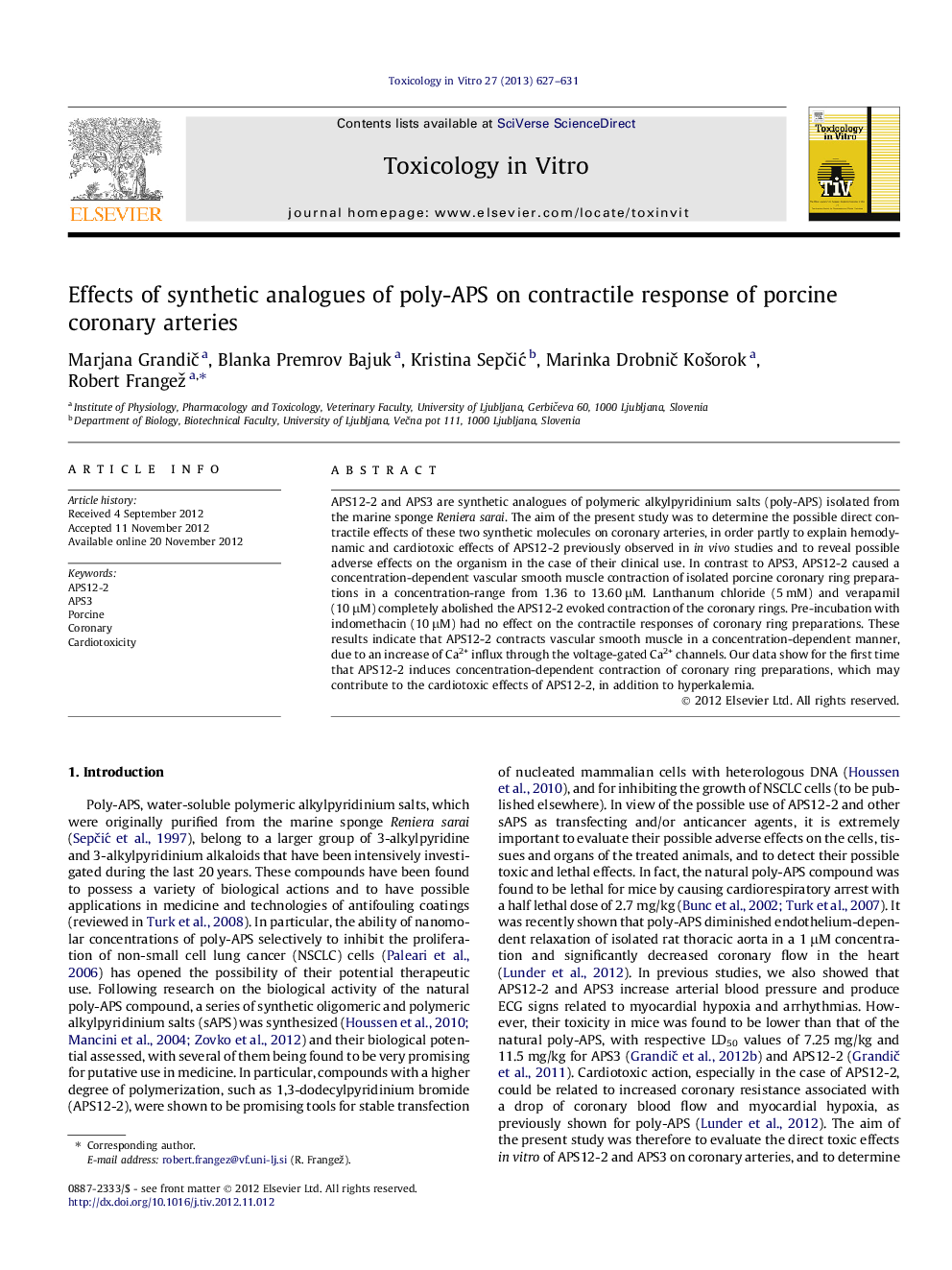| Article ID | Journal | Published Year | Pages | File Type |
|---|---|---|---|---|
| 5862452 | Toxicology in Vitro | 2013 | 5 Pages |
APS12-2 and APS3 are synthetic analogues of polymeric alkylpyridinium salts (poly-APS) isolated from the marine sponge Reniera sarai. The aim of the present study was to determine the possible direct contractile effects of these two synthetic molecules on coronary arteries, in order partly to explain hemodynamic and cardiotoxic effects of APS12-2 previously observed in in vivo studies and to reveal possible adverse effects on the organism in the case of their clinical use. In contrast to APS3, APS12-2 caused a concentration-dependent vascular smooth muscle contraction of isolated porcine coronary ring preparations in a concentration-range from 1.36 to 13.60 μM. Lanthanum chloride (5 mM) and verapamil (10 μM) completely abolished the APS12-2 evoked contraction of the coronary rings. Pre-incubation with indomethacin (10 μM) had no effect on the contractile responses of coronary ring preparations. These results indicate that APS12-2 contracts vascular smooth muscle in a concentration-dependent manner, due to an increase of Ca2+ influx through the voltage-gated Ca2+ channels. Our data show for the first time that APS12-2 induces concentration-dependent contraction of coronary ring preparations, which may contribute to the cardiotoxic effects of APS12-2, in addition to hyperkalemia.
⺠APS12-2 causes a vascular smooth muscle contraction of the porcine coronary rings. ⺠APS12-2 induces the increase of Ca2+ influx through the voltage-gated Ca2+ channels. ⺠APS12-2 diminishes endothelium-mediated relaxation of arterial rings. ⺠Prostanoids probably do not have an important role in the contractile response to APS12-2. ⺠Contraction of coronary rings could play an important role in cardiotoxic effect of APS12-2.
